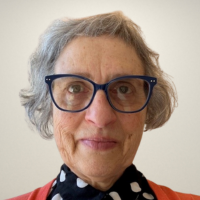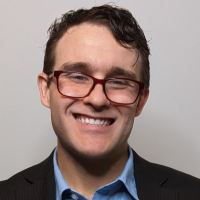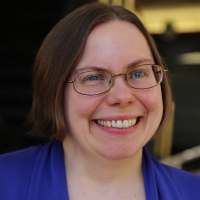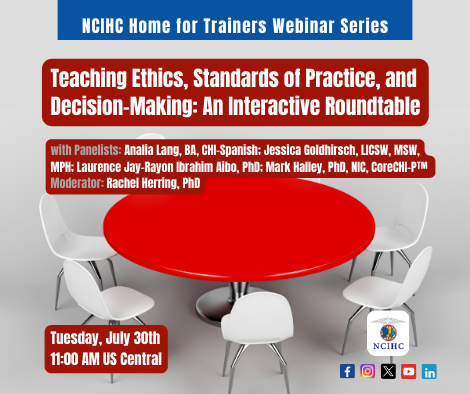Teaching Ethics, Standards of Practice, and Decision-Making: An Interactive Roundtable
With panelists Analia Lang, BA, CHI-Spanish, Jessica Goldhirsch, LICSW, MSW, MPH, Laurence Jay-Rayon Ibrahim Aibo, PhD, and Mark Halley, PhD, NIC, CoreCHI-P™ and moderator Rachel Herring, PhD
Knowledge and skill related to ethics, standards of practice, and decision-making are key aspects of interpreting performance in community and healthcare settings. Acquiring this knowledge and skill can be challenging for trainee and novice interpreters, and teaching about these subjects presents a number of difficulties for interpreter trainers. In this webinar, a panel of experienced trainers will discuss teaching and learning of ethics, standards of practice, and decision-making. While relevant theory and research will be referenced as appropriate, the focus of the panel is on practical aspects in a variety of settings ranging from in-house to nonacademic short courses and workshops to academic courses.
Learning Objectives:
- Discuss aspects of instructional design and content delivery related to teaching and learning of ethics, standards of practice, and decision-making.
- Explore instructional practices for preparing interpreting students to engage in ethically sound decision-making in the performance of their professional duties.
- Present instructional strategies and resources that trainers can use to effectively teach ethics, standards of practice, and decision-making to interpreting students.
|
About the Panelists:

Analia Lang, BA, CHI-Spanish
Analía C. Lang, CHI-Spanish, a Panama native, acquired her BA from Indiana University with a concentration in training, development, and communications. She has been a community interpreter since 2017. Analia has interpreted in all modalities, face-to-face, VRI and OPI. She has a passion for training and empowering individuals to pursue excellence in the profession. She is an advocate for language access and equity for the limited English proficient speaker. As a trainer, Analía has instructed interpreters for more than 15 years. She has developed webinars, workshops, and training curricula for the interpreting community. She has been a presenter at conferences, and she is a contributing author on The Remote Interpreter textbook. She serves as a member of the NCIHC Standards and Training Committee and as a co-chair of its National Ethics Standards work group. Presently, Analia is the Manager of Training and Curriculum for Cross-Cultural Communications, LLC.

Jessica Goldhirsch, LICSW, MSW, MPH
Jessica Goldhirsch, LICSW, MSW, MPH is a clinical social worker with the Dana Farber/Brigham and Women’s Adult Inpatient Palliative Care Consult Service. She is also an adult educator and curriculum developer focusing on continuing education for medical interpreters. She creates innovative curricula designed to facilitate more effective partnerships between palliative care clinicians and interpreters. Ms. Goldhirsch has been working with medical interpreters as a manager of interpreter services and training coordinator for over 25 years. She also has a background in child life therapy and adolescent health education. Growing up in an extended family of immigrants and refugees spread across four continents and speaking seven languages drew her to devote her career to the intersection of linguistic and cultural access to health care and the emotional needs of patients.

Laurence Jay-Rayon Ibrahim Aibo, PhD
Dr. Laurence Jay-Rayon Ibrahim Aibo holds an MA in translation and a PhD in translation studies from Université de Montréal, Canada. She is a certified English-to-French translator in Canada and certified healthcare interpreter in the United States, and has been translating, teaching, and interpreting in the Americas, Europe, and Africa for the past 30 years. She is the co-author of The Routledge Guide to Teaching Translation and Interpreting Online (2022), teaches translation and interpreting courses in online programs at NYU and the University of Massachusetts Amherst, including medical interpreting, and has been designing and leading online training programs for interpreters and translators working in community settings. She is a regular presenter at conferences for translators, interpreters, and educators. In June 2024, she was invited to lead a course on community interpreting at the first Romani Institute for Translators and Interpreters at Concordia University (Montréal, Canada).

Mark Halley, PhD, NIC, CoreCHI-P™
Mark Halley, PhD, NIC, CoreCHI-P™ is Associate Professor of ASL/English Interpreting at the University of North Florida. Dr. Halley conducted his dissertation research in the Department of Interpretation and Translation at Gallaudet University in Washington, DC, where he studied the work of interpreters in the 1988 Deaf President Now protest. His research agenda centers around a) contextualized role enactment of signed language interpreters in contentious political settings and b) the intersections of language and technology with interpreting practice and education. He has been a certified interpreter in private practice since 2011. His greatest joys in life come from playing fetch with his dog, Elio, advocating for faculty rights and academic freedom as President of the University of North Florida chapter of the United Faculty of Florida (UFF-UNF), and once being described as "basically correct" by Noam Chomsky.
About the Moderator:

Rachel Herring, PhD
Rachel E. Herring holds an M.A. in Translation and Interpreting (English/Spanish) from the Monterey Institute of International Studies, a Masters of Advanced Studies in Interpreter Training from the University of Geneva, and a PhD in Interpreting from the University of Geneva. She is currently Director of the Translation and Interpreting Program at Century College (Minnesota) and a per diem staff interpreter at Children's Minnesota. She tweets @herring_r_e and blueskys at @reherring.
 Access Statement: The goal of the NCIHC is to provide full access to anyone wanting to participate in our programming. We must receive your request for a reasonable accommodation no later than two weeks prior to the date of the event. For those who request accommodation after that date, every effort will be made to provide reasonable accommodation; however, we may not be able to do so given potential time constraints. If you need accommodations to participate, please email [email protected] by July 16, 2024. Access Statement: The goal of the NCIHC is to provide full access to anyone wanting to participate in our programming. We must receive your request for a reasonable accommodation no later than two weeks prior to the date of the event. For those who request accommodation after that date, every effort will be made to provide reasonable accommodation; however, we may not be able to do so given potential time constraints. If you need accommodations to participate, please email [email protected] by July 16, 2024.
|









